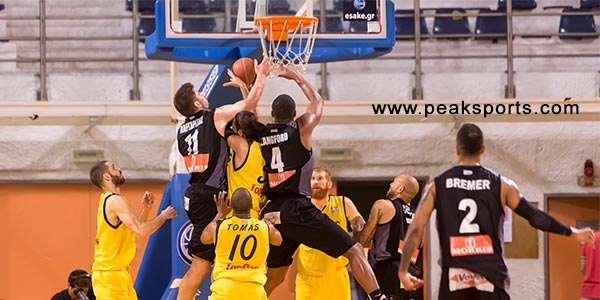
Using Mental Training For a Competitive Edge
“I am pretty much doing everything wrong from a mental perspective and just beginning to work on understanding better ways to think.”
The above comment was received from an athlete in one of our recent surveys.
Mental game challenges are problems that many athletes ponder. In fact, many athletes who complete our survey have identified going through similar circumstances.
Your mental game or lack of a mental game directly affects your level of performance.
When you avoid the mental game, performance declines, confidence drops, anxiety and frustration increase, focus becomes scattered, performance declines… and the cycle continues.
Others wrote the following:
“Mentally, I’m breaking down in games.”
“I’m not sure what I need to work on mentally.”
“I don’t know how to fix these mental areas of my game.
Let’s take these points one at a time to examine
1. Breaking down mentally in games – First, it’s good that you can recognize how your mental game affect performance and that you can identify what precedes these breakdowns. Awareness is important to making changes.
Breaking down in a game is a matter of mental toughness and mental toughness is built through mental training.
2. Not knowing what to work on mentally – Performing at your peak consistently includes many mental skills, such as competing with confidence, managing emotions, staying poised under pressure, focusing and re-focusing during competitions, overcoming adversity, etc.
The key to improving your mental game or building mental toughness is to focus on one mental skill as a time. I try to teach my athletes one lesson at a time when doing mental coaching.
3. Improving my mental game – As you notice, I steered clear of the word “fix.” Your mental game is something you build upon, similar to your physical conditioning. We don’t cure or fix your mental approach, only educate you on how to improve over time.
For these reasons, you want to connect with a mental game coach who can help evaluate your mental game to improve performance consistency. Also, it is important for you to apply mental strategies in training as well as competitions in order to reap the benefits.
Take it from Lebron James…
Lebron James is arguably one of the best athletes and basketball players the world has ever seen. James credits his elite level of play to being mentally conditioned as much as being physically conditioned.
“For me, what gets lost in translation over time is that athletes forget that there’s more than just a physical side. At this point in my life, it’s not that I’ve recognized that the mental side is important — I knew that as a kid when I was younger, but now I’m at a point in my life where I’m able to tap into it and take advantage of it. And take advantage of the benefits because there’s only so much you can do with the physical. There’s only so far you can get with the physical side,” James said.
What’s holding you back from embracing mental game coaching? You want to look at mental training as another facet of your overall training program.
Once you understand that mental training is for all athletes who want to improve their game and not just “head cases,” you can embrace mental training.
Contact us if you’d like to learn more about personal mental coaching–the best option to fast track your mental toughness.
